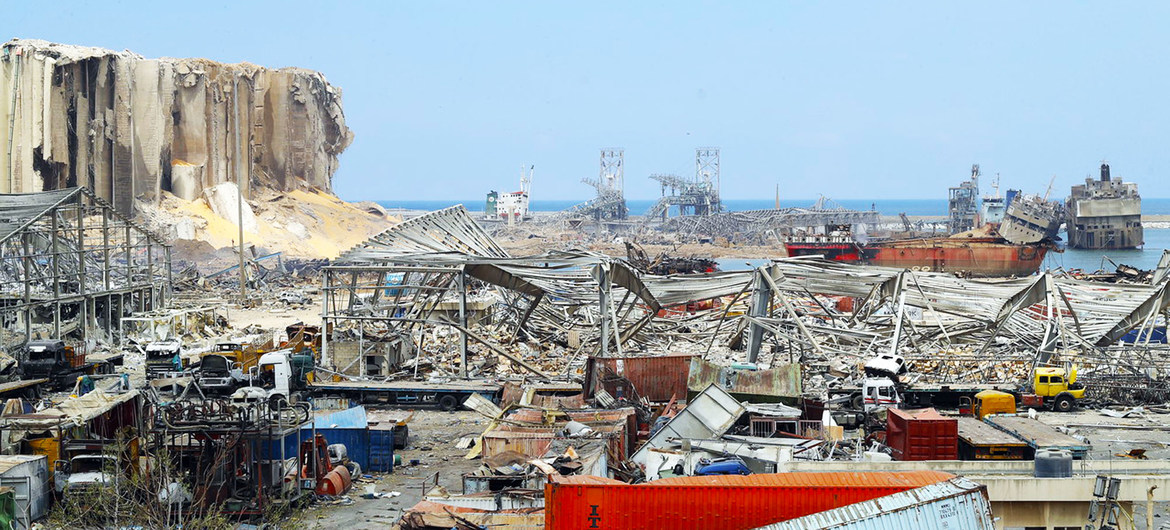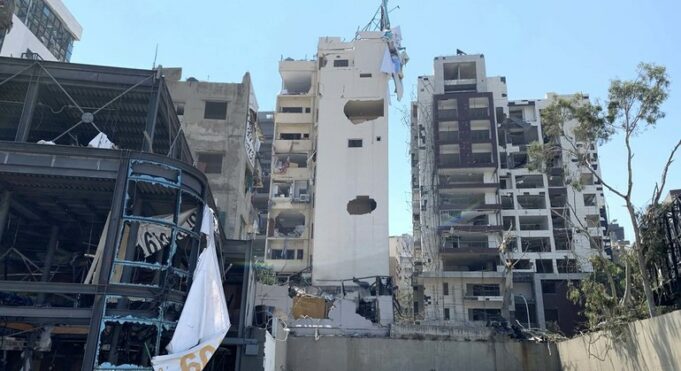A year after the devastating explosions in Lebanon’s capital, Beirut, a staggering 98 percent of families are still in need, according to a survey published by the UN Children’s Fund, UNICEF.
The rapid assessment highlights the severity of the trauma children suffered, and the dire needs families have experienced, which have been magnified by a collapsing economy, political instability and the Covid-19 pandemic.
It was conducted in July and based on telephone interviews with 1,187 households. Survey results were published August 3.
Struggling to recover
“One year after the tragic events, children’s lives remain deeply affected. That is what their parents tell us,” said Yukie Mokuo, UNICEF representative in Lebanon.
“Those families have been struggling to recover from the aftermath of the explosions at the worst possible time—in the middle of a devastating economic crisis and a major pandemic.”
The blasts on Aug. 4, 2020, destroyed large swathes of Beirut. More than 200 people died, six of whom were children, while more than 6,500 people, including 1,000 children, were injured.
Still needing support
UNICEF said seven in 10 households requested basic assistance in the aftermath, mainly cash assistance and food, and almost all still need support today.
One-third of families with children younger than 18 reported that at least one child in their household was still showing signs of psychological distress. For adults, it was closer to half.
The survey further revealed that almost all families said their homes needed repairs after the explosions, which remains the case for half of them a year later.
Four in 10 households said their water supply system was affected, and about a quarter said the situation is still the same today.

Triple crisis
“Since the blast, Lebanon has been in free fall struggling with a triple crisis: economic, political and the Covid-19 pandemic. This is threatening to leave almost every child in Lebanon vulnerable and in need,” said Ted Chaiban, UNICEF regional director in the Middle East and North Africa.
“If change, recovery and accountability don’t happen now they might not happen at all, taking the country further into the abyss and a place of no return.”
Call to action
Lebanese leaders were urged to overcome their political differences and unite to form a government centered on putting the country on the path to recovery. Authorities are further encouraged to provide justice for the families affected by the blast, and hold those responsible accountable.
“Sustaining the delivery of public services for the short and longer term is key for child survival and development. This includes the provision of water, education, and healthcare for all directly benefitting children and the communities in general,” UNICEF said in a press release.
However, this can only happen through good governance and public systems that are resilient to even the worst of shocks and crises, the agency added.
Accountability and justice
“If those systems were in place, we would not have been where we are with the water crisis, as an example, where 75 percent of the households in the country are at risk of losing access to water.”
Lebanon should also build a sustainable national social assistance system, including to provide cash assistance to families in need, similar to a UNICEF-supported program known as “Haddi” that currently is in place.
Finally, the UN agency called for a transparent and credible investigation to determine the cause of the explosion, hold those responsible accountable, and bring justice to affected families, including those who lost loved ones in the tragedy.
Uphold victims’ rights: Bachelet
The UN High Commissioner for Human Rights, Michelle Bachelet, has also called for accountability for the deepening crisis in Lebanon since the explosions.
Ms. Bachelet has stressed the urgent need for the government to ensure a transparent, effective, thorough and impartial investigation into the incident, her spokesperson, Marta Hurtado, told journalists in Geneva Aug. 3.
“There was initially a powerful spirit of national solidarity as all elements of society came together in response, and the government initiated judicial proceedings. But 12 months on, victims and their loved ones are still fighting for justice and truth. Investigations appear to have stalled, amid a worrying lack of transparency and accountability,” she said.
Ms. Hurtado added that the High Commissioner also urged the authorities to uphold the right of victims to effective remedy and reparations.
Reviving education: UNESCO
A top official from the UN’s Educational, Scientific and Cultural Organization was in Beirut to mark the solemn anniversary. The explosions affected at least 85,000 students and damaged some 226 schools, 20 training centers and 32 university campuses. She visited to inaugurate educational establishments which UNESCO helped to rebuild. They include facilities at the Lebanese University. The UN agency is also rehabilitating at least 115 schools, 20 technical and vocational education and training centers, and three higher education institutions. Work on 85 schools has been completed. (UN News)













